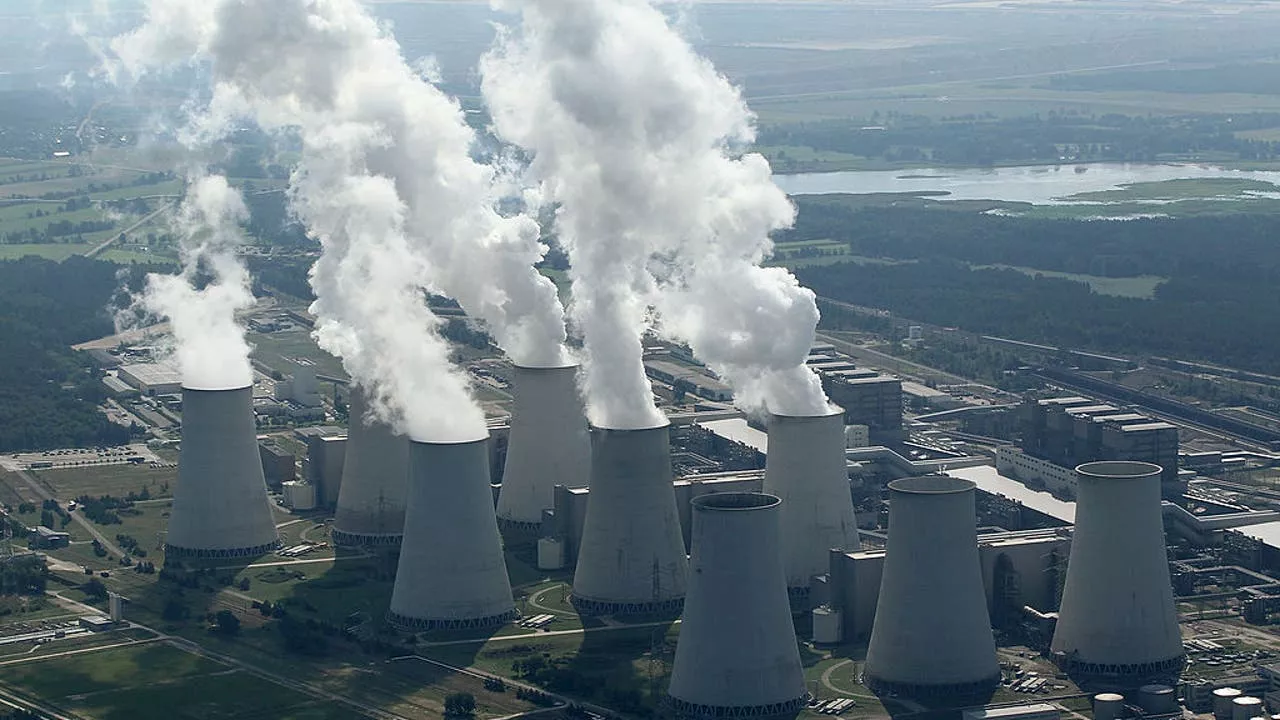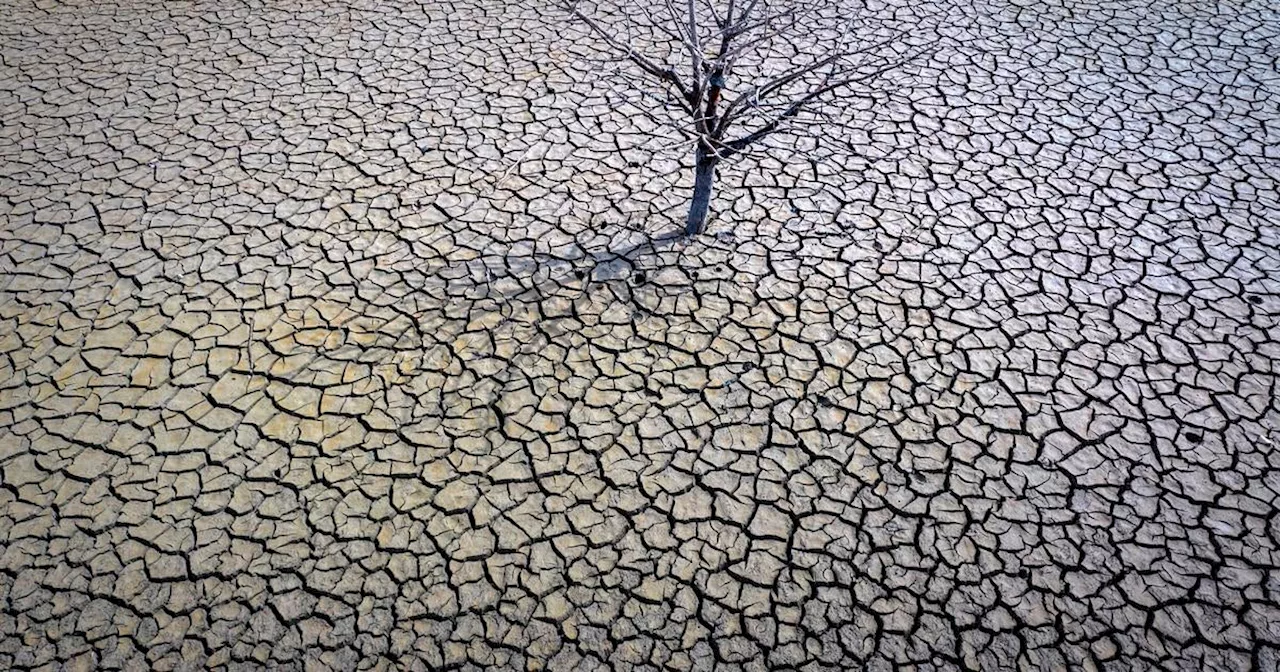Despite cooler conditions in the United States and the influence of a La Nina, January 2025 witnessed record-breaking global temperatures. This surge is fueling debate within the scientific community, with some, including former NASA scientist James Hansen, arguing that global warming is accelerating at an unprecedented rate.
The world experienced another monthly heat record in January 2025, defying expectations of a slightly cooler year despite an abnormally chilly United States and the influence of a cooling La Nina . This surprising record coincides with a new study by renowned climate scientist James Hansen and colleagues, who argue that global warming is accelerating. However, this claim has sparked debate within the research community. According to the European climate service Copernicus, January 2025 was 0.
09 degrees Celsius (0.16 degrees Fahrenheit) warmer than January 2024, the previous hottest January on record. This marks the 18th month in the past 19 that global temperatures reached or surpassed the internationally agreed upon warming limit of 1.5 Celsius (2.7 Fahrenheit) above pre-industrial levels. While scientists won't officially declare this limit breached until global temperatures remain above it for 20 consecutive years, Copernicus' records, dating back to 1940, suggest this era is the warmest in approximately 120,000 years. The primary driver of record heat is the accumulation of greenhouse gases from the combustion of fossil fuels. However, natural contributions to temperature fluctuations haven't followed the anticipated patterns. Samantha Burgess, strategic lead for climate at the European weather agency, highlighted that the dominant natural factor influencing global temperatures is the cyclical change in equatorial Pacific Ocean waters. El Nino events, characterized by unusually warm central Pacific waters, typically lead to spikes in global temperatures. Last year experienced a significant El Nino, despite its conclusion in June, global temperatures remained higher than initially predicted, setting a new record. Conversely, La Nina events, the cooler counterpart to El Nino, tend to mitigate the effects of global warming, making record temperatures less probable. A La Nina emerged in January, following months of anticipation, but global temperatures continue to soar.Even though the equatorial Pacific isn't contributing to warming, we're still witnessing record temperatures, Burgess explained. This phenomenon can be attributed largely to record warmth in other parts of the world's oceans. Typically, after an El Nino like the one experienced last year, temperatures plummet rapidly. However, this trend hasn't materialized. Burgess pointed out that an unseasonably mild January was observed in the Arctic, with parts of the Canadian Arctic recording temperatures 54 degrees Fahrenheit warmer than average. This excessive warmth led to melting sea ice in certain areas. Copernicus reported that Arctic sea ice reached a record low for January, tying with the previous record set in 2016. The U.S.-based National Snow and Ice Data Center recorded the second-lowest sea ice extent for January, trailing only 2018. While February has commenced cooler than last year, Hansen cautioned against dismissing 2025 from the race for the hottest year on record. In a study published in the journal Environment: Science and Policy for Sustainable Development, Hansen and his colleagues asserted that global warming over the past 15 years has accelerated at twice the rate observed during the preceding 40 years. Hansen expressed confidence that this accelerated warming will persist for several years, predicting a close competition between 2024 and 2025 for the hottest year title.However, not all scientists share Hansen's view on the acceleration of global warming. Gabe Vecchi from Princeton University and Michael Mann from the University of Pennsylvania disagree, stating that there's insufficient data to confirm that this warming trend isn't due to random chance. Mann added that the observed temperature increases align with the predictions of climate models
Climate Change Global Warming La Nina El Nino Temperature Records James Hansen
United States Latest News, United States Headlines
Similar News:You can also read news stories similar to this one that we have collected from other news sources.
 Global Temperatures Hit Record High in January 2025 Despite La NinaJanuary 2025 saw the world record its hottest January ever, despite predictions of a slightly cooler year compared to 2024 and an unusually cold period in the United States. The European Union's Copernicus Climate Change Service attributes the record to a combination of greenhouse gas emissions and unexpected warming trends in global oceans.
Global Temperatures Hit Record High in January 2025 Despite La NinaJanuary 2025 saw the world record its hottest January ever, despite predictions of a slightly cooler year compared to 2024 and an unusually cold period in the United States. The European Union's Copernicus Climate Change Service attributes the record to a combination of greenhouse gas emissions and unexpected warming trends in global oceans.
Read more »
 Reach for the Solution: Wordle Hints and Clues for January 22ndNeed help cracking today's Wordle puzzle? This article provides clues and hints for the January 22nd Wordle, including information about the word type, vowel count, starting letter, and more. It also offers a refresher on Wordle basics and tips for choosing a strong starter word.
Reach for the Solution: Wordle Hints and Clues for January 22ndNeed help cracking today's Wordle puzzle? This article provides clues and hints for the January 22nd Wordle, including information about the word type, vowel count, starting letter, and more. It also offers a refresher on Wordle basics and tips for choosing a strong starter word.
Read more »
 Wildfires Rage in California as Global Temperatures Hit Record HighDevastating wildfires sweep through California, fueled by Santa Ana winds, as global average temperatures surpass a critical 1.5 degrees Celsius increase, prompting warnings about the escalating climate crisis.
Wildfires Rage in California as Global Temperatures Hit Record HighDevastating wildfires sweep through California, fueled by Santa Ana winds, as global average temperatures surpass a critical 1.5 degrees Celsius increase, prompting warnings about the escalating climate crisis.
Read more »
 Global Temperatures Hit Record High in 2024, Exceeding 1.5°C Warming Limit2024 saw record-breaking global temperatures, surpassing the 1.5°C warming limit set by the Paris Agreement. Scientists warn of severe consequences if this trend continues, citing the accumulation of greenhouse gases as the primary cause. The year witnessed 27 billion-dollar weather disasters in the U.S. alone, emphasizing the escalating impact of climate change.
Global Temperatures Hit Record High in 2024, Exceeding 1.5°C Warming Limit2024 saw record-breaking global temperatures, surpassing the 1.5°C warming limit set by the Paris Agreement. Scientists warn of severe consequences if this trend continues, citing the accumulation of greenhouse gases as the primary cause. The year witnessed 27 billion-dollar weather disasters in the U.S. alone, emphasizing the escalating impact of climate change.
Read more »
 With temps below zero, Lake Erie is 20% more ice-covered than usualWith January temperatures plummeting below zero, Lake Erie is more than half frozen.
With temps below zero, Lake Erie is 20% more ice-covered than usualWith January temperatures plummeting below zero, Lake Erie is more than half frozen.
Read more »
 Global Rat Infestation Soars, Warming Temperatures and Urbanization BlamedA new study reveals a concerning increase in rat populations worldwide, with Washington, D.C., experiencing the most dramatic surge. The research identifies warming temperatures, urbanization, and human activities as key drivers behind this trend.
Global Rat Infestation Soars, Warming Temperatures and Urbanization BlamedA new study reveals a concerning increase in rat populations worldwide, with Washington, D.C., experiencing the most dramatic surge. The research identifies warming temperatures, urbanization, and human activities as key drivers behind this trend.
Read more »
